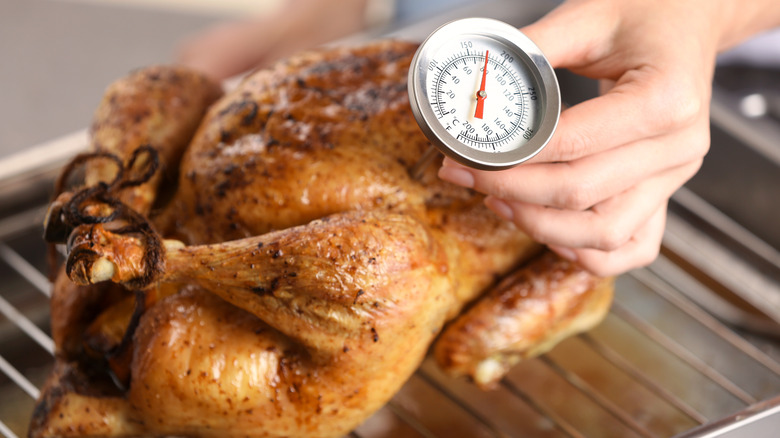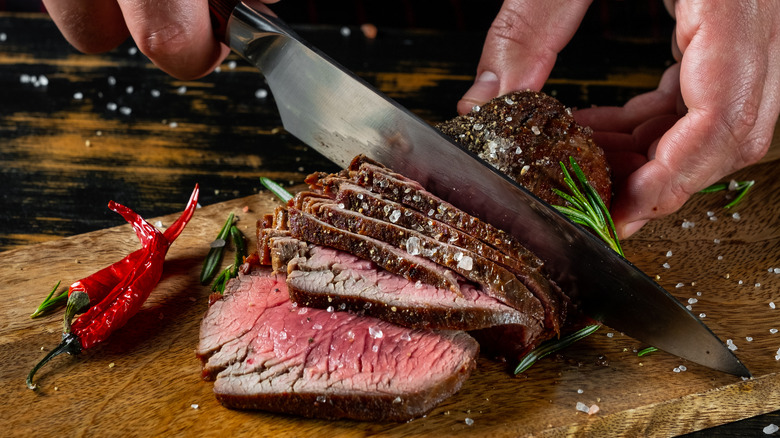The Real Reason You Actually Do Need A Meat Thermometer
Even if you think you don't — especially if you think you don't — you need a meat thermometer. It's an absolutely essential kitchen tool that is going to help elevate your grilling, roasting, and frying skills to the next level (via Martha Stewart). Your drawers and shelves might already be filled to bursting with must-have kitchen gadgets, but you will not regret adding a sleek, digital meat thermometer to the mix.
There are a lot of options out there to choose from depending on your needs. According to Good Housekeeping, the thermocouples are the most accurate, but there are other, less expensive digital models. There are also a variety of leave-in thermometers that can help ease the constant urge to recheck your meat's internal temperature (via Epicurious).
Meat thermometers are vital tools whose purposes go well beyond safely checking that meat is well cooked (via USDA). It can do a lot more than that and is useful for letting you know just how well done your food is, which prevents it from drying out and losing all of its flavors, per Taste of Home.
Meats need time to rest before coming to their final temperature
The main reason that you really need a meat thermometer is that it is the best way to check your meat without losing flavor (via Martha Stewart). Amazing Ribs notes that the less reliable method of checking when meat is finished is to cut into it and see for yourself how well done it is. This is problematic for a few reasons.
For starters, cutting into your meat while it's still cooking isn't a reliable way to judge if it is finished cooking. According to Food52, once you cut into your meat the fats and juices that contain the most delicious flavors are going to pour out. Every time you cut into a steak to check if it's still pink, you're losing more flavor. Secondly, your meat will not finish cooking completely until it's had time to rest. According to Angie Mar, co-owner and executive chef of The Beatrice Inn, it's best to let meat rest before it's reached its final temperature. The residual heat will finish cooking the meat while it rests, and also redistribute all of the juices.
It's best to wait until about ten minutes before you think your food will be finished to check it with a meat thermometer (via Good Housekeeping). You're still making a hole for juices to escape through every time you poke into it, so try and wait until the meat is close to finishing before you check.

